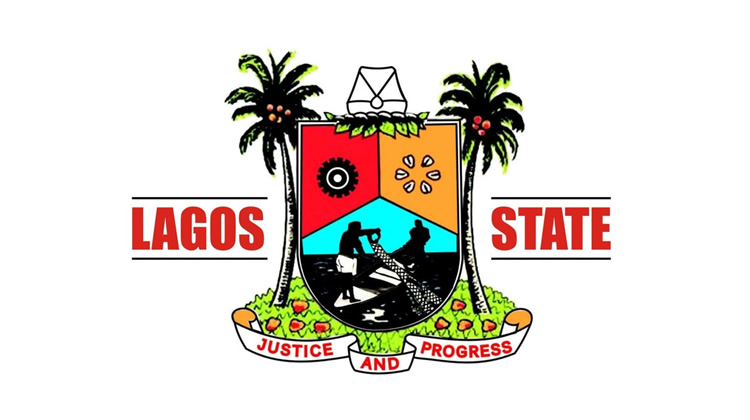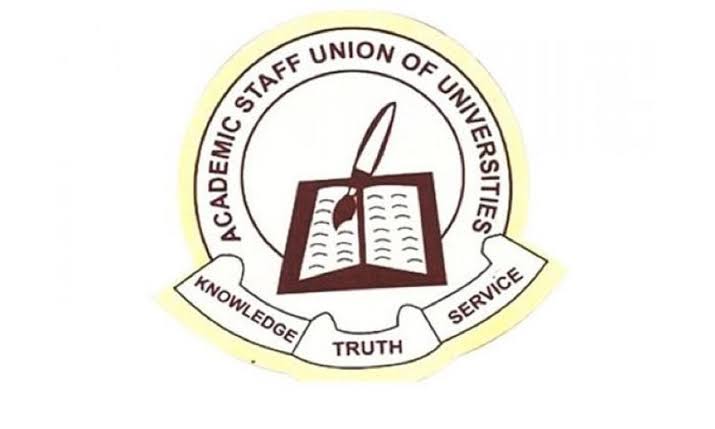News
Kaduna insecurity: Dangers of dwindling nightlife, social and business activities
By Idibia Gabriel, Kaduna
The dwindling of night life, social and business activities amongst the populace currently experiencing in Kaduna metropolis maybe counterproductive and dangerous. Indeed, nightlife, social and night business have its advantages in area of checkmating insecurity unconsciously.
Aside given rooms and more space for the thriving insurgence, the trends also deescalate business growths and development in the affected areas in terms of income generating and revenue derived from night life by the businessmen and owners who also pay their taxes.
Kaduna state metropolis known for twenty four hours sound nightlife, business and social activities is gradually scaling down on daily basis for fear of Bandits and terror attacks stories in town.
Investigation by our correspondent revealed that some parts of Kaduna main town, where day breaks at 12:00am in time past now record little or no social activities anymore. In fact, from 9:00pm most major streets where night activities thrived are closed owing to what many have attributed to fear of Bandits attacks.
Areas worst hits include Barnawa, Sobon Tasha, Narayi, Gonin Gora, Romi, Maraban Rido, Mafuta, Yakowa Road, Kawo and Magajin Gari axis of the metropolis to mention but few. Night business owners and managers like Clubs, hotels and other social joints and centres in these areas are already facing severe challenges of hardship and how to settle utility bills and paying taxes.
Long before 2015, hardly people goes to sleep until daybreak in most of the aforementioned areas including Kaduna urban centres, especially the areas popularly known and addressed as “Obalende”, in Kaduna.
Although before the Boko Harram incidents, the All Progressive Party (APC) led El-rufai administration reportedly frowned at the nightlife and social activities in the some areas, sighting criminal activities associated with such nocturnal activities. Some hotels were demolished in the processes. The fear might however been overtaken as the state now witnesses more insecurity than ever before owning to the insurgence.
Indeed, the insecurity situation has worsened and became more deteriorated at the heat of Bandits and terrorists attacked in the state and Nigeria in general, couple with covid-19 pandemic invasion.
Findings however revealed that crimes and security challenges heightened and widened more in cities that goes to sleep too early as absent of nightlife, business and social activities signifies invitation for crimes. The bandits, it’s strongly believed, also fears of crowded areas and places, and thus strikes more in night in local government areas and community than cities whether in daytime or night.
Securities situation therefore not only worsened in the absent of nightlife and social activities but thrived as complete absence of it engendered crimes and social vices providing opportunity for Bandits to advanced it course of abduction by taken over towns and cities.
Our correspondent who monitor the situation in Kaduna metropolis reported that commercial and business activities have completely dwindled to almost near zero level with virtually no soul ventured outside their premises any moment from 9:30pm. And those seen beyond this hours are portrayed and viewed as rascal or even criminals.
Even where social activities were recorded in some Christian dominated areas like Kaduna South especially Barnawa, Sabon Tasha and few others, they’re not consistent and sustainable.
Night life such as clubbing, birthday parties, disco night and social joints also occurred in this areas but with limited time frame and with heavy self secured security protection for fear of insurgence with heavy pay package for government security operatives who take advantage of the situation to also exploit organizers.
Some of the victims mostly DJs and business owners who spoke to our correspondent in anonymity regretted putting their everything into nightlife business of hotels and tourism, clubbing, night joints amongst other social activities that thrives more in the night.
News
Lagos disburses N1.3bn to 11,386 households – Commissioner

Lagos State government has disbursed over N1,346,030,000.00 to 11,386 households through its bi-monthly Conditional Cash Transfer (CCT) programme.
The Lagos State Commissioner for Wealth Creation and Employment, Mr Akinyemi Ajigbotafe, said this at the 2024 Ministerial Briefing on Thursday at Bagauda Kaltho Press Centre, Alausa, Ikeja.
“We have 12 local governments that have benefitted from this programme and they are Apapa, Amuwo Odofin, Ajeromi-Ifelodun, Agege, Badagry, Epe, Ibeju-Lekki, Lagos Island, Shomolu, Ifako-Ijaye and Alimosho.
“The implementation of the CCT programme has contributed to the improved livelihood of beneficiaries through savings group mobilisation activities.
“Also the unit implemented the NG cares programme where transfer of N343,200,000 million was made to 2,145 beneficiaries in Eti-Osa, Kosofe, Mainland, Iru, Victoria Island, Agboyi -Ketu, Ikosi Isheri and Yaba,” he said.
Ajigbotafe reiterated the commitment of the Babajide Sanwo-Olu administration to wealth creation and employment for residents of the state.
“Under the visionary leadership of Gov. Sanwo-Olu, no stone is left unturned. Come July we’ll inaugurate our leather hub at Matori Mushin, a N4 billion leather industry in Lagos.
“We got our machine and equipment from Italy. This will create more employment for the good people of our dear state,” he said.
He also said Lagos State was particular about the growth and development of Micro, Small and Medium Enterprises (MSMEs), with the initiative to assist start-ups, artisans and entrepreneurs in the state.
“The MSME loan programme in 2023 disbursed N859 million to 1,271 MSMEs in the state.
“Also Lagos Care supported 1,425 MSMEs with grants worth N358 million across the three disbursement linked indicators, which are credit, operation and IT enhancement,” he said.
Lagos Care is a World Bank sponsored intervention designed to cushion the effect of COVID-19 pandemic.
News
ASUU faction dissociates self from UniAbuja strike


News
Nigeria’s economy to experience significant growth soon – Shettima


Vice President Kashim Shettima has expressed the optimism that the Nigerian economy would experience significant growth soon.
Shettima stated this on Thursday in Abuja at the 2nd Chronicle Roundtable, organised by 21st Century Media Services, publishers of 21st Century Chronicle.
The event was as part of group’s public service enlightenment series.
The Vice President implored Nigerians to be patient with the administration of President Bola Tinubu as he steers the ship of state through the economic turbulence and storm he met on ground on assumption of office.
” Soon, Nigeria’s economy will experience significant growth once we’ve overcome these sacrifices.
” Positive changes will soon be evident across all economic indicators – inflation, per capital income, Gross Domestic Product (GDP), poverty reduction, food security -, and all aspects close to the hearts of our people,” he said.
Shettima, who was the Guest Speaker at the roundtable explained some key policy decisions taken by the Tinubu administration as well as its economic and social agenda, including the removal of subsidy on petroleum products.
He described the removal of fuel subsidy as the ‘biggest elephant in the room’ before Tinubu took charge.
“We met on ground, especially the nation’s ailing economy which was already tottering towards an eclipse.
“We look forward to the positive impact on the economy that will be brought by some of our new initiatives in some sectors including, oil and gas, creative arts, steel and solid minerals, housing, blue economy, and digital.
” There is no doubt that there’s a time to plant and a time to reap.
“In between those times, we appeal for patience and seek collective sacrifice from all, especially from us.
“We wish there were a way to treat this ailment without surgery,” he said
The Vice President noted that the decision to remove fuel subsidy was quite tough considering its negative impacts on the lives of the citizens.
He said the removal, however, became an inevitable option when it was discovered that the immediate past administration of former President Muhammadu Buhari did not make provision for it in the 2023 budget.
Shettima said that Tinubu chose the option that would save the life of the nation, instead of one that would merely prolong its imminent and predicted economic death.
“We understood why our predecessor made the decision not to budget for fuel subsidy in their final fiscal year, because Nigeria’s debt service-to-revenue ratio had grown to 111.8 per cent.
” The anticipated debt crisis may sound like fancy economic jargon to the man on the street.
“However, you and I are in a better position to understand how such miscalculations have played out in other countries. It’s an economic death sentence,” he said.
Shettima added: “In plain terms, our debt servicing was such that if you earned, say, N100,000, the entirety of the money wasn’t only paid to your debtor; you were forced to borrow an additional N11,800 to pay the debtor.
“How do you intend to survive this, and how many more loans before you become a pariah?
“We are not even discussing the nation’s budget deficits, diversions of resources from critical sectors of the economy, and corruption masterminded in the subsidy regime”.
The Vice President noted that, whoever had succeeded the previous government, would have either chosen to steer the ship through the storm as Tinubu is doing or jumped ship and let the country implode.
He said those who contested the presidency with Tinubu were not morally justified to question the decision to remove fuel subsidy because it was part of the solutions they also tabled before Nigerians.
“This was because, whether in handling the subsidy matter or the forex crisis, they had also promised the solutions we had adopted.
“Those who attempted to eat their words were instantly proven wrong by data, history, and their antecedents—those emotionless reality checkers,” he said.
Shettima said, for long, Nigeria had endured economic sabotage, leading to the resolve by the CBN Governor, Yemi Cardoso, and the National Security Adviser, Nuhu Ribadu, to neutralise the overpowering influence of currency manipulators.
The manipulators, according to the Vice President, had conspired to frustrate government reforms.
” Today, I stand proud to say that their interventions have translated into desired results, and Naira’s pushback against all odds is an inspiring journey that doesn’t have to be learned in Buenos Aires, as some would want us to do,” he said
Earlier, the Chairman, Ministry of Finance Incorporated and former Finance Minister, Dr Shamsudeen Usman, praised the content of the Renewed Hope Agenda of the Tinubu administration.
He described it as one of the most detailed and carefully crafted policy document in the history of the country.
He stressed the need for the Renewed Hope Agenda document to be reviewed and integrated into the medium and long-term development framework of the country.
Usman noted that policy consistency with a long-term vision to transform critical sectors of the economy, was the way to go.
He commended the administration’s establishment of a central coordination delivery unit to track the performance of programmes, policies and key interventions of the Federal Government.
He insisted that the monitoring of key performance indicators in the policy document was critical to the success of the government.
Malam Mahmud Jega, the Chief Executive Officer of 21st Century Chronicle Media Services, said the media has the responsibility to critically analyse government policies and programmes.
Doing so, according to him, would translate to contributing in shaping the nation’s development trajectory.
-
capital market2 years ago
Rt.briscoe, FBNH, Others halts negative performance of stock market
-
Finance3 months ago
Court orders Sen. Victor Umeh to repay N136m bank debt to AMCON
-



 Abuja Update2 months ago
Abuja Update2 months agoUNDP, FG partnership needed to achieve inclusion, equity- Minister
-
Abuja Update1 month ago
Banks drive stock market performance with N147bn gain
-



 Business1 week ago
Business1 week agoTingo Group unveils Tingo Electric, Tingo Cola drink at Lagos launch
-



 Health2 weeks ago
Health2 weeks agoCapacity training will reduce migration of health workers- NPHCDA
-
News4 months ago
Oil thieves sponsoring malicious media campaign against Navy – Spokesman
-



 Infotech1 month ago
Infotech1 month agoWorld Backup Day: NITDA urges Nigerians to ensure backup of data




